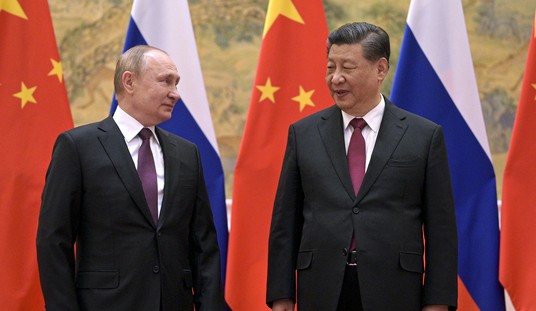By Abu Kais
It is perhaps too early to discuss the so-called Arab initiative, which has reportedly won Hizbullah’s and Assad’s support. That this "breakthrough" was announced in Damascus, and not in Beirut, speaks volumes about what these protests were really about.
"I have received confirmation from the brothers in Syria that they (support)…Lebanese consensus and support our efforts," Ismail, a Sudanese presidential adviser, said after talks with President Bashar al-Assad in Damascus.
Ismail was expected in Beirut later in the day for talks with Lebanese leaders. Arab League Secretary-General Amr Moussa would join him in the Lebanese capital on Tuesday.
Syria’s backing is seen as essential in forging any compromise in Lebanon. Though its troops left the country more than 18 months ago, Damascus still wields influence on many groups, the most powerful of which is the pro-Syrian Hezbollah. (Reuters)
This last paragraph by Reuters is straight out of one of "brother" Bashar Assad’s dreams: "Syria", "Essential", "Lebanon". Assad must think himself important and "yielding influence" again. Only let’s not get ahead of ourselves. There is no "deal" yet, and, unlike what some people are already predicting, nobody has been declared winner, especially not Hizbullah, Aoun and the Assad regime.
Let us start by dispelling the illusion propagated and will be propagated by some Aounists, who believe their street parades won them seats in a "national unity government"—seats that were offered to them without the need to go through Hizbullah and Damascus. If anything, and as many of us suspected, the protests proved that the "national unity government" demand was a façade for a power grab. The only people who still believe the pro-Syrian camp were really asking for a "national unity government" are the wire agencies, usually forced to attach formulaic background information to every action reported.
Last time I checked, Aoun didn’t even want to be associated with this government, expanded or not, so crying victory now or tomorrow is strange, insulting and idiotic. As for Hizbullah, and considering that Nasrallah has accused Siniora of treason, anything short of the prime minister’s assassination cannot constitute real victory for God’s alleged party. As for Berri, he must be enjoying his new completely discredited self. Even Siniora is now saying that the parliament has been "hijacked".
In fact, the few details that emerged about the negotiations indicate that they revolve around ideas proposed by PM Siniora before the protests, but were ignored: expansion of the cabinet to comprise 19 pro-March 14, 9 pro-opposition and 1 neutral. Siniora had proposed two neutral members with no voting powers, so not to block or paralyze the cabinet with every political dispute.
The negotiations will probably revolve around the identity and role of the neutral minister, and whether March 14 or Hizbullah/Aoun would name him. There are other details: the tribunal, early presidential elections, parliamentary elections, etc. This means that 11 days of protests did absolutely nothing of positive value for the country and we are essentially back where we left off.
What we do have some 11 days into the occupation of downtown Beirut, is an economy in shambles, businesses that lost millions of dollars, another ruined tourist season, and deepening of sectarian divisions.
But if the protests did nothing to advance the talks between Lebanese "parties", did they benefit the Assad regime? I don’t know if it was pragmatism that sent the Arab League to Damascus, and I am clearly not privy to what transpired there. The Saudis, Egyptians and Jordanians have nearly divorced the Syrian regime. The flaky regime and its cohorts have certainly not succeeded in toppling the government. And what appears to be regained influence for Damascus could very well be Damascus being told to quit using the country as a chess board. The envoy made it clear that the basis for any settlement should be "no victor and no vanquished".
But it almost appears as if Hizbullah and Aoun wanted to bring Syria back into the equation. Siniora’s proposal had to go through Damascus first, and Damascus was given the opportunity to demonstrate its strength in the country. Sectarian divisions in the country almost always benefit the Assad regime, which has a record in manipulating them. No wonder that immediately after the announcement, Siniora asked Ismail to return to Beirut.
I will await the results of the Arab League sponsored negotiations to lay the final judgment. If Syria now sees itself party to the talks, expect murder and other forms of intimidation, although one could argue that the protests offered an ideal pressure tool. Murdering an entire country, after all, is better than murdering one official.









Join the conversation as a VIP Member